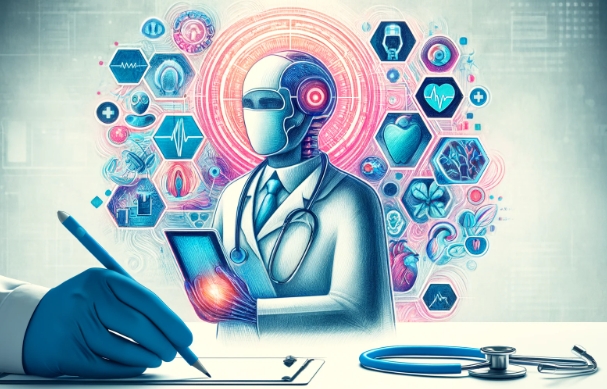Artificial Intelligence (AI) is rapidly transforming the healthcare industry with its innovative capabilities. From diagnosing diseases to predicting patient outcomes, AI is revolutionizing the way healthcare is delivered.
Enhanced Diagnostics
AI algorithms can analyze vast amounts of medical data to identify diseases and conditions with higher accuracy than traditional methods. This enables healthcare providers to make more informed decisions about treatment options.
Personalized Treatment Plans
With AI, healthcare professionals can develop personalized treatment plans based on a patient’s unique genetic makeup, lifestyle, and medical history. This individualized approach ensures that patients receive the most effective and efficient care possible.
Predictive Analytics
AI can forecast patient outcomes by analyzing data from electronic health records and other sources. This allows healthcare providers to intervene earlier and prevent potential complications before they occur.
Remote Monitoring
AI-powered devices can remotely monitor patients’ vital signs and alert healthcare providers to any abnormalities. This technology is especially useful for managing chronic conditions and ensuring patients receive timely intervention.
Robot-Assisted Surgery
AI is also revolutionizing surgical procedures with the introduction of robot-assisted surgery. These advanced systems can perform complex operations with greater precision and control, leading to better outcomes for patients.
Improved Administrative Efficiency
AI can streamline administrative processes in healthcare facilities by automating tasks such as scheduling appointments, processing billing, and managing electronic health records. This allows healthcare professionals to focus more on patient care.
Challenges and Opportunities
While AI offers numerous benefits to the healthcare industry, there are also challenges to consider, such as data privacy and ethical concerns. However, with proper regulation and oversight, AI has the potential to revolutionize healthcare and improve patient outcomes.
In conclusion, AI is transforming healthcare by enhancing diagnostics, personalizing treatment plans, predicting patient outcomes, enabling remote monitoring, revolutionizing surgery, and improving administrative efficiency. As AI technology continues to advance, the possibilities for improving healthcare outcomes are endless.

